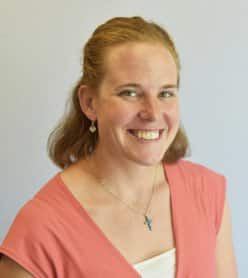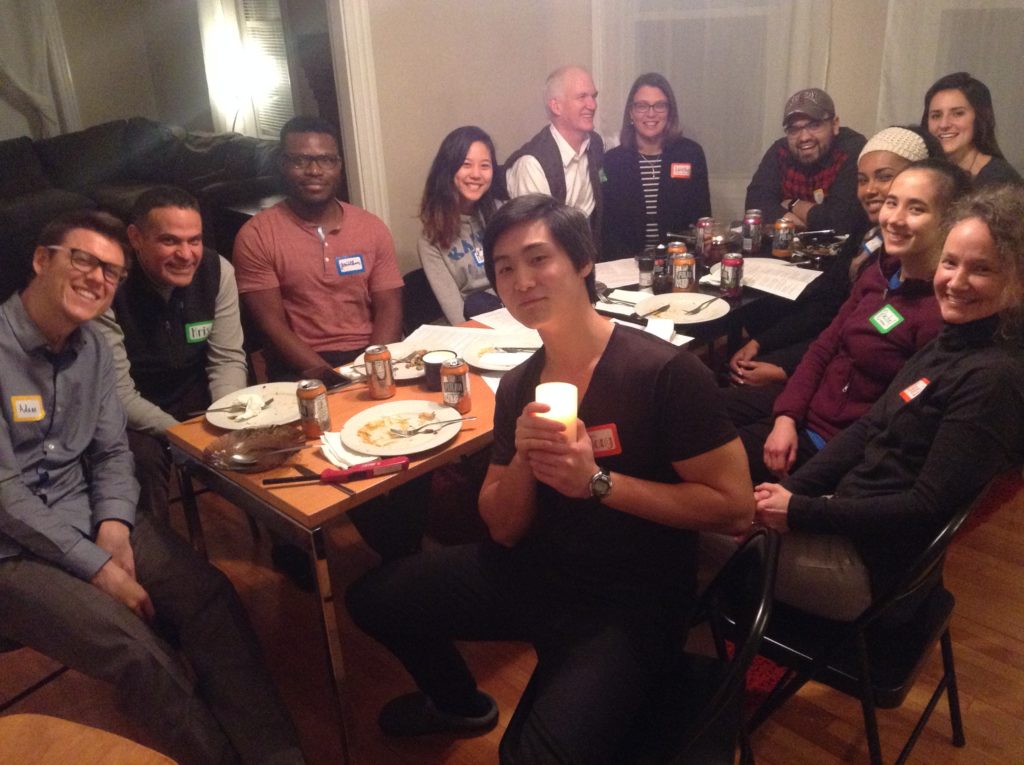 In this article, Kelly Steinhaus, Team Leader of UniteBoston, describes that Christian unity depends on our ability to see the gifts that others bring to the larger body of Christ. This article was derived from a workshop that she presented at Grace Chapel’s January series entitled, “Unity or Disunity in the Church: Can We Be One?”
In this article, Kelly Steinhaus, Team Leader of UniteBoston, describes that Christian unity depends on our ability to see the gifts that others bring to the larger body of Christ. This article was derived from a workshop that she presented at Grace Chapel’s January series entitled, “Unity or Disunity in the Church: Can We Be One?”
As it is, there are many parts, but one body. The eye cannot say to the hand, “I don’t need you!” And the head cannot say to the feet, “I don’t need you!” On the contrary, those parts of the body that seem to be weaker are indispensable, and the parts that we think are less honorable we treat with special honor… God has put the body together, giving greater honor to the parts that lacked it, so that there should be no division in the body, but that its parts should have equal concern for each other.” (1 Corinthians 12:14-25 NIV)
Scripture’s description of the Church as the body of Christ depicts the mutual depending on one another for proper functioning. Every single movement in our body requires coordinated effort. Thus, we should consider: If the Church today were the body of Christ, would we be healthy, or would we be a body that finds parts of itself freezing up or falling off when attempting to move?
In my seven years working in ecumenical ministry, I’ve found that often Christians hold suspicion and hostility towards parts of the body of Christ with whom they disagree, by saying in their words and actions, “I don’t need you.” This seems to be increasingly true today with the volatile political atmosphere and polarizing ideologies within Christianity. Our identity is falsely based on the ways in which we differ, rather than what we hold in common. We say, “I’m Protestant, not Catholic” or “I’m conservative, not liberal.” This is faulty ground to stand on, as a house divided against itself will not stand (Mark 3:25). What would it take for us to value aspects of both Protestant and Catholic faith? For us to hold together the Evangelical concept of a personal relationship with Christ and the Catholic appreciation for tradition and the Mainline Protestant call to justice, for example? These various aspects of the Christian faith are not meant to be mutually exclusive, yet too often we treat them as such.
As God’s people, we are ambassadors of reconciliation (2 Corinthians 5:20), proclaiming the message that God has reconciled us to Christ and to one another in the way that we “do church.” We are called to be an image of God and take on God’s way of being. God is three persons: Father, Son and Holy Spirit, perfect unity in community, a oneness of both distinct functioning and mutual interdependence.
However, the encircling divine dance of the Trinity is far from what the Church is today. How can we move towards becoming this body of Christ that we are called to be? I’m convinced that the next wave of ecumenism depends on a new way of seeing. We must learn to recognize Christ in one another, which Jesus defines as “I in you and you in me” (John 17:23). This seeing will allow us to recognize the gifts that others bring, such that our differences are not a curse and a challenge but rather one of God’s greatest blessings and opportunities for mutual growth.

An ecumenism of mutual recognition depends on our ability to receive from one another. We need to create structures and mechanisms to help people grow in relationship with one another so that we can find delight and recognize a match between our lack and the other’s gifts.
It will take all of us, but how can you make a difference?
First, think about the types of Christians that you spend time with. Do they represent a cross-section of the beautiful cultures and traditions within our Christian faith? Also, which part of the Church do you have most questions about, or are you most unfamiliar with? Will you make plans to meet up with someone you know from that tradition to hear their story of faith or visit a worship service from that stream of Christianity?
Relationships across difference are important because they expose our own biases in our ways of understanding. As we venture outside of our comfort zones to discover Christ in one another, here are five key attitudes we need to cultivate within ourselves:
- Humility – We have to be humble enough to admit that our own tradition only embraces a portion of the breadth of Christian truth and expression that has existed over the centuries, and recognize our own flaws and biases.
- Bravery – We have to be willing to leave the comfort of the people who look like us and believe like us, and cultivate a willingness to be comfortable with the uncomfortable. There will be unknown rituals, but our discomfort is a normal part of the learning process as we deepen our understanding of God and others.
- Curiosity – We have to learn to approach cultural differences within Christianity with curiosity rather than judgement, and take on a posture of learning. It is as if we are exploring and discovering an unknown people group and seeking to sift through the dirt in order to mine the “gold” that they carry, the particular gift and aspect of God’s nature that they bring.
- Relational – Jesus modeled an ability to love others even when they rejected him. We need to cultivate a desire for deep relationship with other Christians and the fortitude to stay with those relationships even when it’s hard.
- Honor – When we discover the gold in other Christians, behold it and delight in it and call it forth so all can see, this reminds other Christians of what they bring to the whole body for mutual enrichment.
If you look again at our passage in 1 Corinthians 12, you’ll find that what divides is arrogant lack of recognition, and what cultivates greater unity is honor. As we recognize how other Christians fill our gaps, we embody more of the perichoretic nature of the Church and become more the body of Christ we’re called to be: “joined and knit together by what every joint supplies, according to the effective working by which every part does its share, causes the growth of the body for the edifying of itself in love” (Ephesians 4:16).
Every joint supplies. Every part of the body has gifts and treasures of gold that are given for the health and maturity of the whole body. Will you discover a new way of seeing the body of Christ, so its parts can rise up and begin to move together as the living, dynamic force of Jesus Christ on earth?
Kelly Steinhaus is Team Leader of UniteBoston, whose mission is to build relational connections throughout the diversity of Boston’s Christian community. She is pursing a career in full-time ministry, and is studying to receive her Masters of Divinity in Global and Community Engagement at Boston University.
This article was originally posted in the Paulist Center’s Koinonia Journal and was derived from a talk that she presented during Grace Chapel’s “January Jolt” series entitled, “Unity or Disunity in the Church: Can We Be One?” You can watch the full video and teachings here.
To learn more about UniteBoston’s neighborhood dinners that are taking place throughout the city, click here: www.uniteboston.com/dinner
Hopefully I can sit down and talk to someone and see if we can work the Kingdom together my name is Pastor Stephen Donahue
Phone 617 838 4027
Yes Pastor Stephen – it was great to meet the other week and discuss together how we can build the kingdom of God in Boston!
Jambo, Kelly!
Do they even speak Swahili in Tanzania? Remember the cold, exhausted exhilaration of Kilimanjro? All the best to you in your journey back to Africa for the ecumenical theology conference. Awesome! So good to delight in the different members which make up the body…. Perichoresis: wow! Think about Christ on the Cross, looking down on all of us, as in the Dali painting, or as the missionary tied to the Cross drops over the waterfall in The Mission.
Can’t wait to share the joy with you and Andrew in May at Grotonwoods.
Lots of Love,
Uncle Lee
Jambo, Uncle Lee! Yes, it’s awesome to look up at Mt Kilimanjaro and realize that I was there just five years ago – So glad you can come to our wedding in May! Thanks for all your support for me and UB!
Well thought out and well lived in UB! Nice article. I will ever be grateful to Henri Nouwen for some incredible insights about Christ and the body of Christ even though we were worlds apart on his acceptance of other “spiritual” sources. The Truth is the Truth no matter where you find it, just recognize it and accept it.